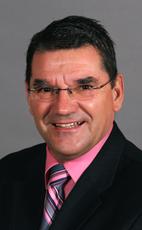Mr. Speaker, my comments will perhaps be a bit less partisan than the comments of my Liberal colleague. That is his right. I sense a lot of frustration over the fact that this bill could have the same content as some bills previously introduced by Liberal members. That is not what my comments are about.
The bill before us would establish a monument in Ottawa to honour the victims and Canadian survivors of the Holocaust. I repeat, my Liberal colleague had every right to say what he wanted to. He did not use unparliamentary language, but I think that we must remember that we are talking about a monument to illustrate the horrors of the Holocaust, the horrors that Jewish people were subjected to, simply because they were Jewish. There is no room for partisanship here. I hope that this bill will receive the support of all parties.
I am sure my introduction made this clear, but I will state that the Bloc Québécois will be in favour of Bill C-442, which would establish a monument to honour the victims of the Holocaust.
As I said earlier, the Holocaust is one of the most horrific crimes of the 20th century. We have a black mark on our record—a real black eye, in the popular expression—meaning that we are not proud as a society to have known about the horrors of the Holocaust, even though we had nothing to do with their occurrence. While we believe that we must commemorate the victims of the Holocaust, we also believe that we must continue the fight against anti-Semitism and all other forms of hate speech and discrimination.
We in the Bloc Québécois have already taken action. I will probably not have enough time to come back to Bill C-384, which was introduced and studied by the Bloc Québécois, that would have made it a criminal offence to commit an act of mischief that targets certain institutions frequented by a given community. Do not forget that in west Montreal there have already been fires in book stores, libraries and schools frequented by Jewish people. We think it is completely wrong and unacceptable, which is why the Bloc Québécois introduced Bill C-384. I will talk about this bill again if I have time.
Anti-Semitism and all other forms of hate speech are contrary to the values of Quebec and Canada. The Bloc Québécois has always acted to secure social peace and ensure a public space without hatred, discrimination or violence. That fight is crucial for any society that claims to be democratic.
When we think of the Holocaust, the first images that come to mind are images of horror. Each of us here and each person watching remembers them well, no matter what our age, because we have seen the audiovisual documents that illustrate the horror of the camps. These barbaric acts shocked the entire world. And out of that shock came the vow, “Never again!”
Faced with the political and economic crisis that hit Germany after World War I, the National Socialist Party singled out the Jews and blamed them for all of Germany's troubles. Jews became scapegoats, and the worst lies were fabricated about them.
The first step in the long process toward the Holocaust was the discriminatory legislation that targeted German citizens of the Jewish faith. They were identified as such by law. They were forced to sell their businesses. They were herded into buildings. They were forced to wear a yellow star in order to be easily recognized. The yellow star was a badge of shame. The goal was to chase the Jews out of Germany by any means possible, including by prohibiting Jews from holding more and more jobs.
When Germany annexed other countries, more Jews fell under the Nazi regime. At the height of the Nazi bloodshed, Europe's Jews were sent to concentration camps and then to extermination camps. It is estimated that about three-quarters of Europe's Jews, or approximately 40% of the world's Jewish diaspora, were massacred by the Nazis.
In terms of numbers, as my colleagues know, an estimated 6 million Jews died under the Nazi regime. The Holocaust was the first mass murder characterized by its industrial scale and its bureaucracy. Like a machine, the Nazis sought the systematic elimination of an entire people just because it existed. It was neither a political nor a military threat. The only crime committed by Jews in Nazi Germany was existing.
This mass murder was carried out by Hitler's regime and several Third Reich bureaucrats, as well as by numerous collaborators, including individuals and states. In addition to Jews, the Nazis massacred countless gypsies, homosexuals, people with disabilities and members of Slavic communities, including Poles and Soviets. We have to remember them too.
In the aftermath of the war and in light of the horror of the crimes committed by the German state, governments around the world agreed to add crimes of genocide and crimes against humanity to existing war crimes in international law. As a result, international law included two new concepts arising directly from the barbaric treatment of the Jews: genocide and crimes against humanity.
Bill C-442, which the Bloc Québécois will support, would erect a monument to remind us of that crime. This is a reminder to us all of humanity at its worst, a reminder that we must never allow this to happen again.

